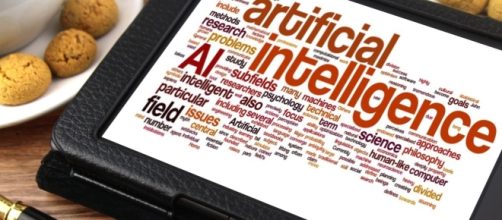In recent years, Artificial Intelligence (AI) and virtual reality have become powerful tools in the evolution of the world’s education sector. As these new technologies are gradually and boldly being incorporated in classrooms, education is turning into a more modernized industry but latest reports also claimed that AI is disrupting the learning market.
Modern technology has long been a valuable influence in the lives of humans. And its pervasiveness spawned a powerful tool that will play a significant role in the evolution of education made through the combination of AI and education technology (EdTech).
AI disrupts the education industry
AI-powered EdTech platforms and applications such as E-learning are increasingly becoming popular in the United States. But as classroom sizes continue to grow, the limitations on the individual interaction between the teachers and the students are also increasing, The Huffington Post noted.
Despite the growing classroom sizes, U.S. school budgets and classroom resources are restricted. Some experts believed that the strain in the country is due to the “all-time low proficiency" in several subjects like mathematics.
Unfortunately, the demand for inexpensive educational solutions and modern technology’s failure to make a “measurable impact” on the academic performances of students made some experts say that artificial intelligence and Education Technology are disrupting the Education Industry.
Since technology has been incorporated in the classrooms, students have gained more accessibility to electronic devices than before.
How Artificial Intelligence Is Disrupting the Education Industry -… https://t.co/yD8hj50wmD via @googlenews #AI #artificialintelligence pic.twitter.com/otEArPDhBA
— Jonathan Nessler (@jtnessler) September 29, 2017
Permanent classroom fixture
Even though AI could disrupt the education industry, ScreenTime Solutions co-founder and COO Gene Swank believed that it could become a “permanent fixture in the classroom” soon. However, Swank stressed that nothing can really replace a “good old-fashioned teacher” and AI will just be an effective tool that will help educators boost students’ learning aptitude and academic performances.
Modern education
It is already a known fact that automation, personalized and E-learning could be the future of modern education. That is why several tech experts are on the verge of steering AI into higher education in new and bolder ways.
With that said, a recent Time report highlighted the need for college students to be prepared for the future of automation and its impact on the employment industry. According to the publication, over 5 million factory jobs in the United States have been lost since the rise of automation in 2000.
American educational institutions, however, are quite slow to modernize. In fact, these places where human talents and skills are honed often teach students lessons that will be rendered obsolete when they graduate.
Do you use technology everyday in education? Well read here how #ArtificialIntelligence could change that https://t.co/eW6IW8oW1M pic.twitter.com/rfmHndTzc9
— RapidMiner (@RapidMiner) September 15, 2017
Power of humanics
In order to equip students to be robot-proof, colleges and universities must create and implement a curriculum that focuses on humanics. This curriculum will empower students to be capable of doing the jobs that only humans can do by concentrating on three literacies — data literacy, human literacy (e.g. cultural agility, ethics, creativity, teamwork, and entrepreneurship) and technical literacy.
Through this curriculum, students will become more creative in producing original ideas in the era of AI.
Educational providers should also recognize the progress of technology, which won’t come to a stop soon. Lastly, lifelong learning is very important to stay relevant and competitive in this generation where modern technology thrives.


